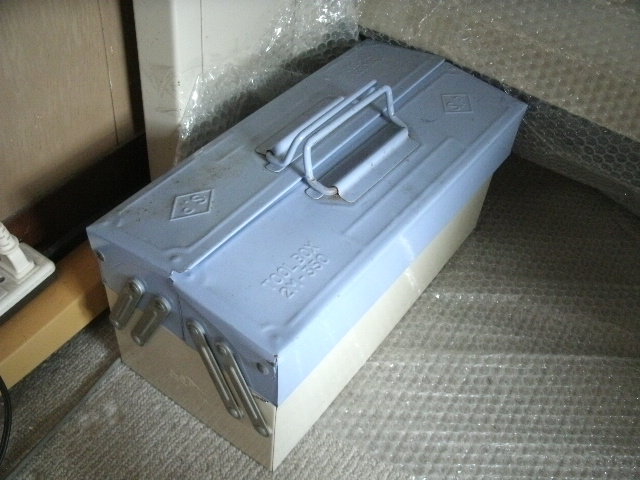Motive 経緯目的
I checked why air temperature soared faster than my body felt the temperature, when kerosene heater worked.
室内気温が体感温度よりも早く上昇する現象を検討した。
Fan effects room temperature rise 室温上昇に影響するファン
TweetSummary 要約
It seems that hot air flow by fan effects sharp room temperature rise. I confirmed the air flow like air fludic experiment.



ファンの影響
どうも半導体温度センサはサーミスタなどと比較して熱応答が早く温度感受性が高いようです。微小物体の温度を計るうえで高速応答は良い事だけれども,石油ファンヒータを机下に置いて気温を測定すると 人体が感じる感覚とは一致しません。冬季の室温と外気温度測定結果を日報としてまとめて公開しているので参照してください。
センサの固有応答時間(時定数)を早めることはできないけれど,熱容量を付加するなどして遅らせるのは可能です。流体力学の実験を模してティッシュペーパを壁にピン止めすると,下部からの 上昇気流によりティッシュペーパが Photo1 のように吹き上げられます。センサが暖気で炙られるのだろうと思います。このセンサはケースに外腔があり外気に触れやすいようにしています。他のセンサはケースに 突起を形成してセンサを収容しています。風の影響を過敏に反応するのもどうなのかと思います。植物がどう感じているのかが知りたいが不明です。おそらく動物より時定数は大きいのではと思います。
Photo2 に示すように床の上に置いた外付け温度センサを Photo3 の工具箱の陰に置いていますが,チャートをみると温度センサの出力はオーバシュート気味です。オーバーシューズを履いていても ファンヒータ起動後の昇温時には熱く感じるので,実際に激しく昇温しているのでしょう。こまめにファンヒータの設定温度を変えれば,省エネになると思います。
Draft effect
It seems that semiconductor sensor has higher sensitivity than thermistor. Although the response time of sensor (time constant) cannot speed up, it can be slow with heat capacity. I found that #3 on wall is heated up draft by kerosene fan heater under desk. I pinned a piece of tissue paper shown Photo1, considering aero fluid experiment. #3 has a cavity for temperature sensor. We do not know plants how to feel temperature. The time constant of plants is larger than animal, I think.
I simply put extension temperature sensor on floor shown in Photo2. Now I put it behind my tool box shown in Photo3. But the temperature change chart sometimes shows overshoots.
Biwa Lake JAPAN © 2017-05-15 Enoki